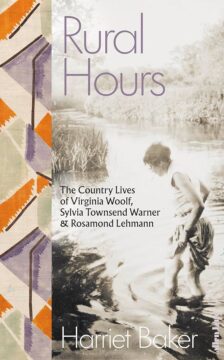Patricia Craig at the Dublin Review of Books:
 The thing that had precipitated Warner into the literary limelight, and earned her quite a lot of money, was her novel of 1926, Lolly Willowes. As an assertion of female autonomy and idiosyncrasy, it was both timely and captivating. It was also prescient, with its theme of decamping to the country about to be enacted in the life of its author (though perhaps without so sorcerous a resolution). Laura (Lolly) Willowes is a wry old-maidish lady occupying a rather put-upon role in the London household of her married brother, when she suddenly takes flight to a hamlet in the Chilterns called Great Mop, enters into a compact with the Devil and becomes a witch. Despite its subject matter, the book is not excessively whimsical – or its whimsey is tempered by a stern ironic overtone. A style at once mischievous and elegant is one of Warner’s hallmarks, whether it’s applied to a mediaeval nunnery beset by money worries (The Corner That Held Them, 1948), the beguiling and ruthless Cat’s Cradle Book (1960), or the distinctly unfairylike Kingdoms of Elfin (1977), her last subversive flight-of-fancy, carried out with an eldritch inventiveness.
The thing that had precipitated Warner into the literary limelight, and earned her quite a lot of money, was her novel of 1926, Lolly Willowes. As an assertion of female autonomy and idiosyncrasy, it was both timely and captivating. It was also prescient, with its theme of decamping to the country about to be enacted in the life of its author (though perhaps without so sorcerous a resolution). Laura (Lolly) Willowes is a wry old-maidish lady occupying a rather put-upon role in the London household of her married brother, when she suddenly takes flight to a hamlet in the Chilterns called Great Mop, enters into a compact with the Devil and becomes a witch. Despite its subject matter, the book is not excessively whimsical – or its whimsey is tempered by a stern ironic overtone. A style at once mischievous and elegant is one of Warner’s hallmarks, whether it’s applied to a mediaeval nunnery beset by money worries (The Corner That Held Them, 1948), the beguiling and ruthless Cat’s Cradle Book (1960), or the distinctly unfairylike Kingdoms of Elfin (1977), her last subversive flight-of-fancy, carried out with an eldritch inventiveness.
more here.
Enjoying the content on 3QD? Help keep us going by donating now.
